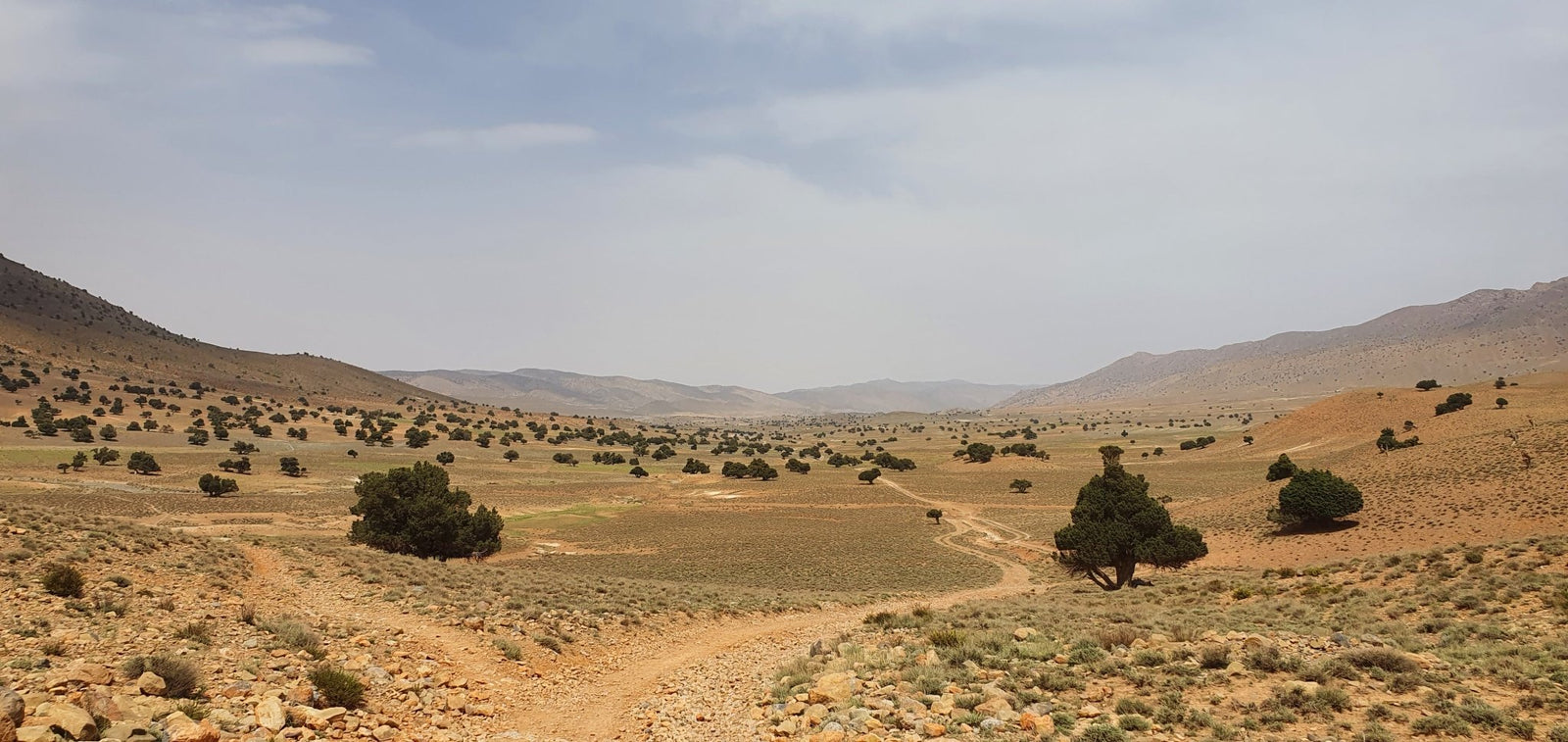Als Motorradreisender ist es für die Sicherheit und Einhaltung der örtlichen Verkehrsregeln entscheidend, die Geschwindigkeitsbegrenzungen und die damit verbundenen Bußgelder in jedem Land zu kennen. In Marokko sind diese Vorschriften überraschend streng, wenn man in der Nähe von Städten unterwegs ist. Dieser umfassende Leitfaden soll Ihnen helfen, die Geschwindigkeitsbegrenzungen und Bußgelder in Marokko zu kennen und eine reibungslose Fahrt zu gewährleisten.
Geschwindigkeitsbegrenzungen in Marokko
In Marokko variieren die Geschwindigkeitsbegrenzungen je nach Straßentyp und Fahrzeug.
Städtische Gebiete
Die Geschwindigkeitsbegrenzung in Städten und Ortschaften beträgt normalerweise 60 km/h (37 mph) . Diese niedrigere Begrenzung ist auf den höheren Fußgänger- und Fahrzeugverkehr zurückzuführen. Bedenken Sie auch, dass in städtischen Gebieten viel los sein kann, darunter Fußgänger, Radfahrer und verschiedene Tiere wie Esel und Schafe. Das kann zunächst ziemlich verwirrend und chaotisch erscheinen. Es ist wichtig, wachsam zu bleiben und die Geschwindigkeitsbegrenzungen strikt einzuhalten, um Unfälle zu vermeiden.
Landstraßen
Auf offenen Straßen außerhalb städtischer Gebiete erhöht sich die Geschwindigkeitsbegrenzung auf 100 km/h (62 mph). Diese Straßen sind weniger befahren, aber aufgrund der unterschiedlichen Straßenverhältnisse ist trotzdem Vorsicht geboten. Landstraßen können unerwartete Kurven und schmale Fahrspuren aufweisen und mit langsameren Fahrzeugen, landwirtschaftlichen Geräten und Tieren befahren werden. Bedenken Sie auch, dass der Sand auf Asphalt ziemlich rutschig werden kann.
Autobahnen
Auf marokkanischen Autobahnen beträgt die Höchstgeschwindigkeit für Motorräder 120 km/h (75 mph) . Autobahnen sind für schnelleres Reisen ausgelegt, aber es ist wichtig, wachsam zu bleiben und die Geschwindigkeitsbegrenzungen einzuhalten. Dennoch kann man auf Autobahnen in Marokko einige sehr langsame Fahrzeuge (alte Autos oder manchmal sogar Traktoren) finden. Bleiben Sie auch wachsam, da einige Fußgänger die Autobahnen für schnelleres Reisen nutzen oder sie an zufälligen Stellen überqueren müssen!
Bußgelder für Geschwindigkeitsüberschreitungen
Die marokkanischen Behörden nehmen Geschwindigkeitsübertretungen ernst. Die Bußgelder sind so gestaltet, dass sie Verstöße verhindern und die Verkehrssicherheit gewährleisten. Die Bußgelder steigen mit der Schwere des Geschwindigkeitsverstoßes (wie in Europa) und es ist wichtig, die Folgen einer Geschwindigkeitsüberschreitung zu kennen. Die drei Kategorien sind:
Geringfügige Geschwindigkeitsüberschreitungen
Eine Überschreitung der Geschwindigkeitsbegrenzung um bis zu 20 km/h (12 mph) kann zu einer Geldstrafe von 300 MAD (ca. 30 USD) führen. Geringfügige Geschwindigkeitsüberschreitungen werden oft als weniger schwerwiegendes Vergehen geahndet, können aber im Wiederholungsfall dennoch zu erheblichen Strafen führen. Auch diese Bußgelder müssen direkt am Kontrollpunkt oder der Polizeistation bezahlt werden.
Mäßige Geschwindigkeitsüberschreitung
Eine Überschreitung der Geschwindigkeitsbegrenzung um 20-30 km/h (12-18 mph) kann mit einer Geldstrafe von 500 MAD (ca. 50 USD) geahndet werden. Diese Geschwindigkeitsüberschreitung gilt als gefährlicher, da sie das Unfallrisiko erheblich erhöht. Diese Geldstrafen müssen ebenfalls direkt bezahlt werden.
Starke Geschwindigkeitsüberschreitung
Eine Überschreitung der Geschwindigkeitsbegrenzung um mehr als 30 km/h (18 mph) kann zu einer Geldstrafe von 700 MAD (ca. 70 USD) führen, zusammen mit der Möglichkeit weiterer Strafen wie Punkten in Ihrem Führerschein. Hohe Geschwindigkeitsüberschreitungen werden mit größter Ernsthaftigkeit geahndet, da sie sowohl für den Motorradfahrer als auch für andere Verkehrsteilnehmer ein hohes Risiko darstellen. In seltenen Fällen wird der Verstoß an die örtliche Botschaft Ihres Landes weitergeleitet, damit er zu Hause weiterverfolgt werden kann.
Zusätzliche Strafen
Neben Geldstrafen sieht das marokkanische Verkehrsrecht bei schweren oder wiederholten Verstößen zusätzliche Strafen vor. Dazu können gehören:
- Punktesystem: Wenn Sie durch wiederholte Verstöße zu viele Punkte sammeln, kann dies zur Aussetzung oder zum Entzug Ihres Führerscheins führen. Bei jedem Geschwindigkeitsverstoß werden Punkte in Ihrem Register hinzugefügt, und das Erreichen eines bestimmten Schwellenwerts kann schwerwiegendere Konsequenzen nach sich ziehen.
- Erscheinen vor Gericht: In extremen Fällen, wie etwa bei rücksichtslosem Fahren oder überhöhter Geschwindigkeit, müssen Sie möglicherweise vor Gericht erscheinen. Ein Erscheinen vor Gericht kann, je nach Schwere des Vergehens, zu höheren Geldstrafen, gemeinnütziger Arbeit oder sogar zu einer Gefängnisstrafe führen.
- Beschlagnahme des Fahrzeugs: Bei schweren Verstößen kann Ihr Motorrad beschlagnahmt werden. Dies führt nicht nur zu einem Verlust der Mobilität, sondern verursacht auch zusätzliche Kosten für die Abholung Ihres Fahrzeugs.
Polizeipräsenz und -verhalten
In Marokko spielt die Polizei eine entscheidende Rolle bei der Aufrechterhaltung der Verkehrssicherheit. Sie ist dafür bekannt, sehr freundlich zu sein, aber auch (überraschend) streng bei der Durchsetzung der Verkehrsregeln.
Freundliche Interaktionen
Marokkanische Polizisten sind im Allgemeinen ansprechbar und hilfsbereit. Egal, ob Sie eine Wegbeschreibung oder Hilfe bei einem Problem am Straßenrand benötigen, sie sind da, um Ihnen zu helfen.
Konsequente Durchsetzung
Trotz ihrer Freundlichkeit hält sich die marokkanische Polizei streng an die Verkehrsregeln. Geschwindigkeitsüberschreitungen, rücksichtsloses Fahren und andere Verstöße werden ernst genommen. Sie führen regelmäßig Kontrollpunkte und Patrouillen durch, um die Einhaltung der Vorschriften sicherzustellen. Wenn Sie beim Rasen erwischt werden, müssen Sie mit einer strengen, aber fairen Reaktion rechnen, die mit Geldbußen und Strafen verbunden ist, die dem Gesetz entsprechen.
Straßenbedingungen und Gefahren
Marokko bietet abwechslungsreiche und malerische Landschaften, aber die Straßenverhältnisse können sehr unterschiedlich sein. Für Motorradfahrer ist es wichtig, sich der möglichen Gefahren bewusst zu sein, um eine sichere Fahrt zu gewährleisten.
Straßenzustand
Während Autobahnen und Hauptstraßen im Allgemeinen gut instand gehalten werden, können sich Landstraßen in unterschiedlichem Zustand befinden. Schlaglöcher, unebene Oberflächen und schmale Fahrbahnen sind in ländlichen Gebieten üblich. Fahren Sie immer vorsichtig und seien Sie auf plötzliche Änderungen der Straßenbedingungen vorbereitet.
Tiere auf der Straße
In ländlichen Gegenden begegnet man häufig Tieren wie Ziegen, Schafen und Kamelen auf der Straße. Diese Tiere können plötzlich auftauchen und es ist wichtig, eine Geschwindigkeit beizubehalten, die es Ihnen ermöglicht, schnell und sicher zu reagieren.
Unterschiedliche Verkehrsteilnehmer
Auf den marokkanischen Straßen verkehren zahlreiche Fahrzeuge, von modernen Autos und Motorrädern bis hin zu Fahrrädern, Eselskarren und sogar Fußgängern. Diese Vielfalt erfordert ständige Wachsamkeit und Anpassungsfähigkeit, um Unfälle zu vermeiden.
Tipps für Motorradfahrer
- Bleiben Sie informiert: Informieren Sie sich immer über die aktuellen Verkehrsgesetze und -vorschriften, bevor Sie in Marokko fahren. Wenn Sie die neuesten Regeln kennen, können Sie Bußgelder vermeiden und eine sichere Fahrt gewährleisten.
- GPS verwenden: Nutzen Sie GPS-Geräte, die Sie auf Geschwindigkeitsbegrenzungen und Verkehrsbedingungen aufmerksam machen. Moderne GPS-Systeme können Sie in Echtzeit über Geschwindigkeitsbegrenzungen und potenzielle Gefahren informieren.
- Warten Sie Ihr Motorrad: Sorgen Sie dafür, dass Ihr Motorrad in gutem Zustand ist, um mit unterschiedlichen Straßenbedingungen sicher zurechtzukommen. Regelmäßige Wartungskontrollen können Pannen verhindern und sicherstellen, dass Ihr Motorrad optimal funktioniert.
- Seien Sie vorsichtig: Halten Sie sich an die Geschwindigkeitsbegrenzungen, insbesondere in städtischen Gebieten und in der Nähe von Schulen oder Fußgängerzonen. Vermeiden Sie aggressives Fahren und seien Sie immer darauf vorbereitet, unerwartet anzuhalten oder abzubremsen.
- Planen Sie Ihre Route: Planen Sie Ihre Route, bevor Sie sich auf eine Reise begeben, um sich über die Straßentypen zu informieren, die Sie anfahren werden. Diese Vorbereitung hilft Ihnen, Änderungen der Geschwindigkeitsbegrenzungen und Straßenbedingungen vorherzusehen.
- Bleiben Sie sichtbar: Tragen Sie helle oder reflektierende Kleidung, um sicherzustellen, dass Sie für andere Verkehrsteilnehmer sichtbar sind, insbesondere bei schlechten Lichtverhältnissen. Auch die Verwendung der Scheinwerfer Ihres Motorrads kann die Sichtbarkeit verbessern, selbst tagsüber.
- Seien Sie auf Notfälle vorbereitet: Nehmen Sie ein Erste-Hilfe-Set und grundlegende Reparaturwerkzeuge mit. Im Notfall kann es von unschätzbarem Wert sein, zu wissen, wie man grundlegende Reparaturen durchführt.
Abschluss
Für Motorradfahrer ist es wichtig, die Geschwindigkeitsbegrenzungen und Bußgelder in Marokko zu beachten, um eine sichere und angenehme Fahrt zu gewährleisten. Die Bußgelder für Geschwindigkeitsüberschreitungen sind so strukturiert, dass sie Verstöße verhindern und die Verkehrssicherheit fördern. Die marokkanische Polizei ist für ihr freundliches, aber strenges Vorgehen bekannt und sorgt dafür, dass sich die Verkehrsteilnehmer unterstützt fühlen und gleichzeitig verstehen, wie wichtig es ist, die Verkehrsregeln einzuhalten.
Die unterschiedlichen Straßenverhältnisse, die von gut gepflegten Autobahnen bis hin zu Landstraßen mit potenziellen Gefahren reichen, erfordern von Motorradfahrern Wachsamkeit und Anpassungsfähigkeit. Indem Sie die Geschwindigkeitsbegrenzungen einhalten, Ihr Motorrad warten und auf unerwartete Hindernisse vorbereitet sind, können Sie Marokkos atemberaubende Landschaften genießen und gleichzeitig sicher bleiben und die örtlichen Gesetze einhalten.
Egal, ob Sie ein einheimischer Motorradfahrer oder ein Besucher sind, der Marokkos Straßen erkundet, es ist wichtig, sich über Geschwindigkeitsbegrenzungen und die Folgen von Geschwindigkeitsüberschreitungen im Klaren zu sein. Die Bußgelder und Strafen sollen die Verkehrssicherheit fördern und alle Verkehrsteilnehmer schützen. Bei Rottweiler Motors ermutigen wir alle Motorradfahrer, sich zu informieren und verantwortungsbewusst zu fahren. Gute Reise!
Weitere Informationen und Updates zu den Verkehrsregeln in Marokko finden Sie im Blog von Rottweiler Motors. Wenn Sie Fragen haben oder Hilfe benötigen, können Sie sich gerne an uns wenden.

